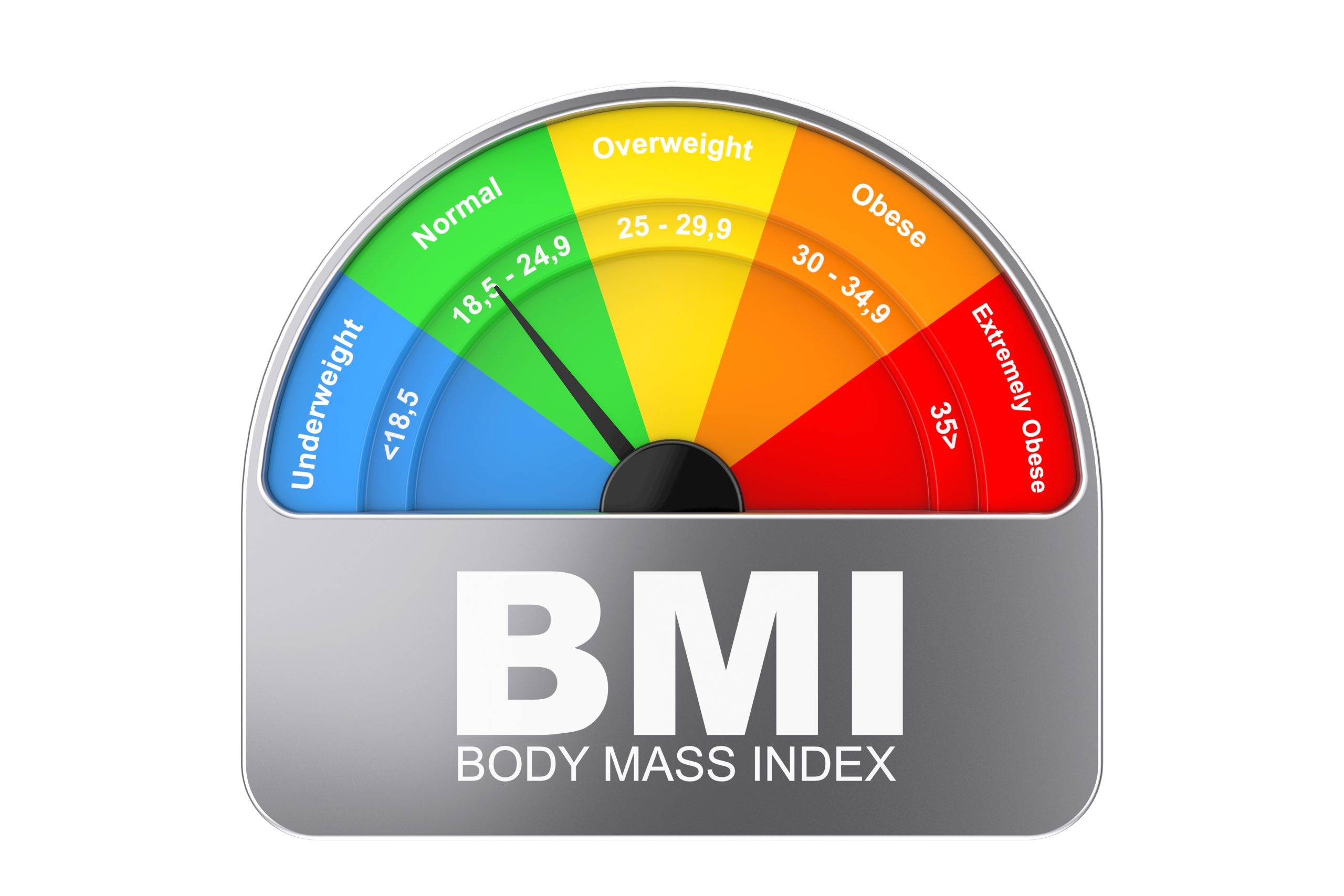Maintaining a healthy weight is essential for overall well-being and reducing the risk of chronic diseases. One common tool used to assess whether you’re at a healthy weight is the Body Mass Index (BMI). But what exactly is BMI, and how reliable is it in determining obesity or a healthy weight? Let’s break it down.
What Is BMI?
BMI stands for Body Mass Index, a simple calculation that uses your height and weight to estimate your body fat. It is expressed as a number derived from the following formula:
BMI = weight (kg) / [height (m) x height (m)]

For example, if you weigh 70 kg and are 1.75 meters tall, your BMI would be:
70 / (1.75 x 1.75) = 22.86
BMI is categorized into the following ranges:
- Underweight: Less than 18.5
- Normal weight: 18.5 – 24.9
- Overweight: 25 – 29.9
- Obesity (Class 1): 30 – 34.9
- Obesity (Class 2): 35 – 39.9
- Extreme Obesity (Class 3): 40 and above
Why BMI Matters
BMI serves as a quick screening tool to identify whether someone is underweight, at a healthy weight, overweight, or obese. Healthcare professionals often use it as an initial assessment before recommending further tests or lifestyle changes.
A high BMI (above 30) is linked to an increased risk of health issues such as:
- Type 2 diabetes
- Heart disease
- Hypertension
- Certain types of cancer
- Sleep apnea
On the other hand, being underweight can also pose health risks, such as weakened immunity, nutrient deficiencies, and osteoporosis.
Limitations of BMI
While BMI is a useful tool, it has some limitations:
- Doesn’t Measure Body Composition: BMI doesn’t distinguish between muscle and fat. A muscular athlete may have a high BMI but low body fat.
- Age and Gender Factors: BMI doesn’t account for differences in body composition due to age or gender. Women and older adults typically have higher body fat percentages than men with the same BMI.
- Ethnic Variations: Different populations may have varying health risks at the same BMI level. For instance, individuals of Asian descent may face health risks at lower BMI levels compared to other groups.
- Location of Fat: BMI doesn’t indicate where fat is stored in the body. Visceral fat (around internal organs) poses a greater health risk than subcutaneous fat (beneath the skin).
Other Ways to Assess Obesity
If you want a more comprehensive understanding of your body weight and health, consider these additional assessments:

- Waist Circumference: Measuring your waist can help assess the risk of obesity-related health issues. A waist circumference of more than 102 cm for men and 88 cm for women indicates a higher risk.
- Body Fat Percentage: This measurement gives a clearer picture of how much fat your body contains compared to muscle and other tissues.
- Waist-to-Hip Ratio: This assesses fat distribution and can be a better indicator of health risks than BMI.
When to See a Doctor
If your BMI falls in the overweight or obese range, it’s a good idea to consult a healthcare provider. They can evaluate your overall health, suggest further assessments, and recommend personalized strategies for weight management.
How to Maintain a Healthy Weight
If you discover that your BMI is in the overweight or obese category, don’t panic. Making small, sustainable changes can have a big impact on your health.
- Eat a Balanced Diet: Focus on whole grains, lean proteins, fruits, and vegetables while limiting processed foods and sugary snacks.
- Stay Active: Aim for at least 150 minutes of moderate-intensity exercise per week.
- Monitor Portion Sizes: Being mindful of portion sizes can help prevent overeating.
- Get Enough Sleep: Sleep plays a critical role in maintaining a healthy weight.
- Seek Support: Consider working with a nutritionist, fitness coach, or support group to stay motivated.
Final Thoughts
BMI is a helpful starting point for understanding whether you are at a healthy weight or at risk for obesity-related health conditions. However, it’s important to consider other factors like body composition, lifestyle, and overall health. By staying informed and making healthy choices, you can take control of your well-being and live a healthier life.
Your journey to better health starts with Evolve Well Healthcare. Reach out for expert guidance on nutrition and weight management.


No responses yet